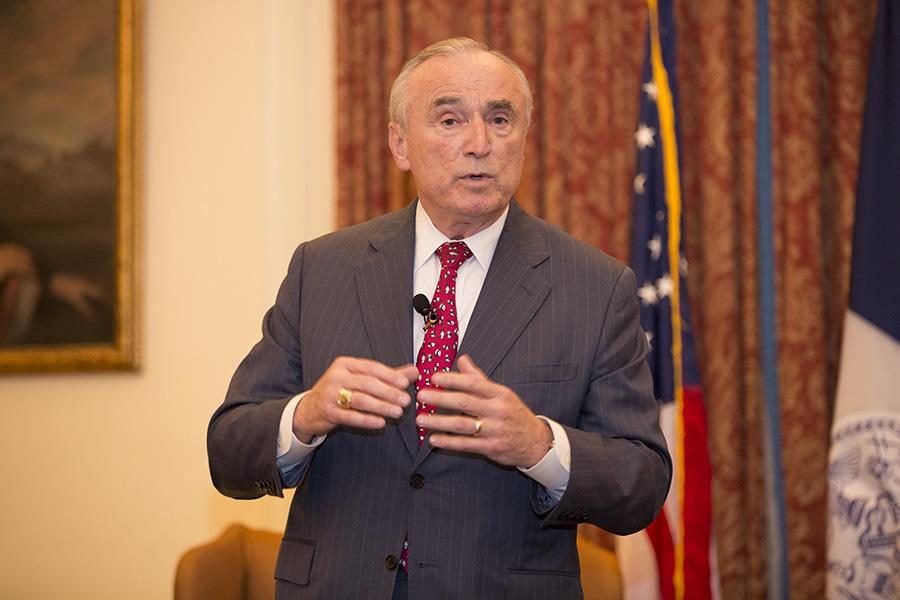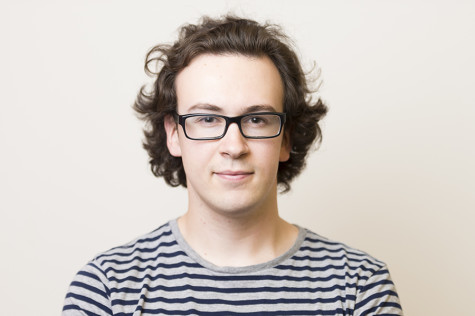Bratton visits NYU Law amid protests
While Bratton discussed the stop-and-frisk policies in New York, protesters gathered at the NYU School of Law.
November 25, 2014
A gathering of 15 demonstrators at the NYU School of Law called for the removal of NYPD Commissioner William Bratton, who came to speak at the school as a part of Conversation on Urban Crime about broken windows policies like stop-and-frisk and police action on Nov. 24.
Jonathan Laks, an NYU Law student and member of New Yorkers Against Bratton, protested outside the event. Laks said Bratton does not adhere to the progressive platform Mayor Bill de Blasio ran on.
“Bill de Blasio pretends to be liberal and progressive but he hired Bratton, a founder of the broken windows ideology,” Laks said.
Bratton responded to the protestors’ interruption, which occurred 10 minutes into his speech when the protest moved inside the building, by commending them for exercising their rights.
“That is one of the pillars we are celebrating — the freedom of speech, the freedom to dissent, the freedom to give voice to your issues and your concerns,” Bratton said.
After the interruption, Bratton continued with his planned lecture, during which he addressed his position on police action. He said he said he wanted the New York City Police Department to decentralize police departments and focus more on preventing crime rather than responding to it.
“The reason the police exist is to prevent crime and disorder to potentially eliminate fear,” Bratton said. “The city is very diverse, and we cannot police it as one entity and we need to be in a position to decentralize with community police.”
Bratton also discussed the use of stop-and-frisk, which he said is important for maintaining order in the United States.
“Stop, question and frisk is essential to American democratic policing,” Bratton said. “The police are authorized by our Constitution, by our Bill of Rights, to stop, to question and, if appropriate, to frisk under reasonable suspicion, not probable cause.”
Bratton compared police work to that of an oncologist in that too much force, like too much chemotherapy, can be harmful to the person being helped.
“I believe what happened in the early 19th century was the analysis was correct, the focus was correct, but the amount of medicine used was totally out of proportion, with stop-and-frisks,” Bratton said. “The department began to pull back some of that while still clinging to the fact we need large doses to keep control of the illness.”
Bratton declined to comment about the Eric Garner and Akai Gurley cases because they are both ongoing investigations.
Gabrielle Apollon, an NYU Law student, said she wished attendees were given the opportunity to ask Bratton questions.
“I think it’s kind of ridiculous that we did not have space for students to dialogue with him and ask him questions,” Apollon said. “I would have asked him about his labeling of this incident, the incident of Mr. Gurley’s killing, an ‘unfortunate accident.’”
A version of this article appeared in the Tuesday, Nov. 25 print edition. Email Alanna Bayarin at [email protected].
















































































































































